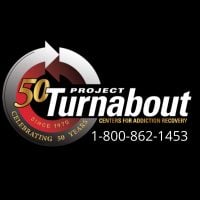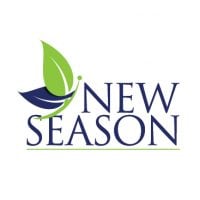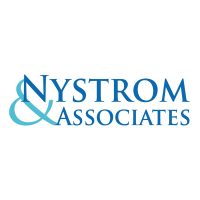Jan's Place
Drug Rehab Center in Litchfield, Minnesota
Jan's Place is a comprehensive addiction treatment facility located in Litchfield, Minnesota, which provides personalized recovery services including residential, outpatient and inpatient care backed by experienced mental health professionals utilizing cognitive behavioral therapy and motivational interviewing to empower individuals suffering from substance abuse, alcoholism and drug addiction.
About
Jan's Place in Litchfield, Minnesota, stands out for its compassionate and comprehensive approach to adult foster care (AFC), focusing particularly on individuals grappling with mental illness and/or addiction. This facility is unique in its dedication to providing not just interim relief but also a pathway to long-term well-being through an array of structured programs and services aimed at rehabilitation and recovery, serving a wide demographic including young adults and seniors.
- Round-the-clock supervision and a licensed adult foster care program testify to the high level of care and support provided.
- Comprehensive aftercare planning and support, ensuring a seamless transition back into the community and workplace.
- Personalized care planning tailored to each client's unique needs, fostering an environment conducive to recovery.
Holding a State License certification, Jan's Place adheres to the highest standards of service quality, reflecting its commitment to excellence in aiding those with addiction and mental health challenges. The facility’s integration with Thrive Behavioral Network amplifies its capabilities, leveraging a broader spectrum of resources and expertise to facilitate recovery.
Jan's Place primarily addresses issues related to substance abuse and mental illness, providing a nurturing environment for healing and growth. They employ an eclectic mix of treatment methods, incorporating both individual and group counseling, alongside extensive life skills training. Care levels span from inpatient to outpatient, accommodating various needs and stages of recovery.
Genders
Ages
Modality
Additional
Accreditations
State License
Conditions and Issues Treated
Recovering from substance abuse is an essential part of a healthy life for many people. It’s a long and challenging process, but it can be worth it in the end if you manage to get through all parts. Detoxifying your body, rehabilitation after that time passes or when needed (depending on what type), and then recovery while also receiving therapy support throughout this entire process.
A standard route to starting recovering from substance abuse and addiction is through a detoxification center. There you can completely heal your body and mind and continue on the path of recovery without feeling any of the lingering effects of substances.
Levels of Care Offered
This center offers a variety of custom treatment tailored to individual recovery. Currently available are Inpatient, Outpatient, Residential, with additional therapies available as listed below.
Inpatient treatment centers offer a safe, secure, and often medically supervised environment for drug or alcohol-addicted individuals. Many of these facilities are equipped to provide detoxification, treatment for co-occurring mental health disorders, and aftercare programs.
The patient typically spends 28 to 30 days at the facility and will receive extensive drug counseling. They will also learn how to live without drugs and how to make the right decisions in life.
An outpatient treatment program is set up to help with alcohol or drug addiction or a co-occurring disorder. The treatment must attend the treatment facility for their therapy and other programs but return home each night. The frequency of mandatory attendance decreases after much of the treatment program is complete. The treatment programs are monitored by the treatment facility and case managers who work for a judge or judge’s office. A treatment program may be performed out of a treatment facility, treatment clinic, or treatment center.
The benefits of outpatient treatment programs are many. One of the most beneficial treatment programs is that it allows treatment for clients who cannot afford or may not be able to attend treatment at a treatment facility, treatment center, or treatment clinic full-time. Another benefit of treatment programs is that they reduce crime rates because treatment allows people to treat their addiction.
Residential treatment programs are those that offer housing and meals in addition to substance abuse treatment. Rehab facilities that offer residential treatment allow patients to focus solely on recovery, in an environment totally separate from their lives. Some rehab centers specialize in short-term residential treatment (a few days to a week or two), while others solely provide treatment on a long-term basis (several weeks to months). Some offer both, and tailor treatment to the patient’s individual requirements.
Therapies & Programs
Individualized Treatment is essential because it gives addicts the ability to participate in a program that meets their unique needs. An addict should work with professionals who understand what they’re going through, especially if the addict is actively using. Finding the right treatment program for an addict is difficult, but it’s even harder without communicating with those who have experience treating your specific situation.
The therapies typically involve all family members, potentially including siblings, children, and parents who play a role in their daily lives. These sessions can be essential because they address past issues that may have affected an addict or alcoholic’s recovery process. They provide support during this time when it is needed most!
A family therapy session, often called a family meeting or intervention, is a necessary process that helps loved ones of addicts see their situation in a new light. It’s also one of the most challenging things families will ever have to do when they’re facing a loved one battling addiction or alcoholism.
Group therapy sessions provide recovering addicts with a chance to cope with everyday situations that many face. Group therapy sessions are held in rehab facilities, clinics, churches or community centers that offer drug addiction treatment.
People who attend these groups are encouraged to voice their feelings and support other addicts in recovery. This helps group members strengthen their own recovery program while cheering on others who are struggling with sobriety.
Life skills training is beneficial for addicts in recovery because it helps them learn how to take care of themselves and improve their quality of life, which can promote feelings of purpose and motivation.
This works by teaching individuals life-enhancing skills that support positive living, including:
- Healthy lifestyle habits
- Skills to effectively manage stress
- Effective communication skills to help them get their needs met without turning to drugs or alcohol
- Money management and budgeting skills so they can continue to take care of themselves after treatment ends.
For people trying to kick their drug addiction, nutrition therapy at Jan's Place is a great tool. Nutritional deficiencies gradually creep in, and before you know it, you’re facing health problems. It helps restore balance to the body, and for many addicts, it represents the first step on the road to recovery.
Nicotine replacement therapy was developed to help people quit smoking. It does so by providing small doses of nicotine that control cravings and break smoking habits.
NRTC products like skin patches and gum deliver low-dose nicotine that prevents cravings, making the transition from smoker to non-smoker easier.
Patient Experience
Experiential Therapy at Jan's Place
Drug addicts can benefit from experiential therapy, which involves real-time activities to process trauma and emotions. This type of therapy is available at Jan's Place and can help reduce the need to resort to drugs and alcohol. Activities may include role-playing, use of props, and others. The individual learns to release suppressed thoughts that lead to negative feelings and embrace the present moment. Experiential therapy is beneficial in treating various disorders, including drug addiction, eating, and behavioral disorders.
Fitness Therapy
Fitness therapy is a great way to improve physical and mental health. It can be used in combination with other therapies to help people recovering from addiction. Exercise releases feel-good chemicals, helps with self-discipline, and can improve moods. Fitness therapy can help people heal physically and mentally from the damage done by addiction.
Payment Options Accepted
For specific insurance or payment methods please contact us.
Is your insurance accepted?
Ask an expert, call (888) 674-0062
Thrive Behavioral Network Associated Centers
Discover treatment facilities under the same provider.
- Nova House Intensive Residential Treatment Services in New Ulm, MN
- Austin Manor in Austin, MN
- Gull Harbour in Moorhead, MN
- Willow Haven Intensive Residential in Lake Elmo, MN
- Milestones in Alexandria, MN
Learn More About Thrive Behavioral Network Centers
Additional Details
Specifics, location, and helpful extra information.
Litchfield, Minnesota 55355 Phone Number(320) 593-0844 Meta DetailsUpdated April 15, 2024
Staff Verified
Patient Reviews
There are no reviews yet. Be the first one to write one.
Litchfield, Minnesota Addiction Information
Minnesota is fighting an opioid epidemic that is leaving hundreds of its residents dead each year. Both prescription opioids and illicit opioids are widely abused in the Land of 10,000 Lakes. Heroin continues to be one of the most commonly abused drugs in the state, if not the most common illicit drug. Over 10% of all treatment admissions in Minnesota list heroin as their drug of choice.
7.9% of Litchfield, Minnesota, residents aged 12 or older reported using illicit drugs. Opioids were involved in 58% of overdose deaths. Heroin is a major problem, there were 173 cases of heroin abuse in 2016. 21% of alcohol abusers, 9% of marijuana users, and 5.4% of cocaine users were reported. In Litchfield, Minnesota, some of the most common programs include inpatient rehab, outpatient rehab, and detox programs.
Treatment in Nearby Cities
- Northfield, MN (80.6 mi.)
- Pine City, MN (89.3 mi.)
- Cottage Grove, MN (79.4 mi.)
- Kasson, MN (115.0 mi.)
- Litchfield, MN (0.9 mi.)
Centers near Jan's Place
The facility name, logo and brand are the property and registered trademarks of Jan's Place, and are being used for identification and informational purposes only. Use of these names, logos and brands shall not imply endorsement. RehabNow.org is not affiliated with or sponsored by Jan's Place.






